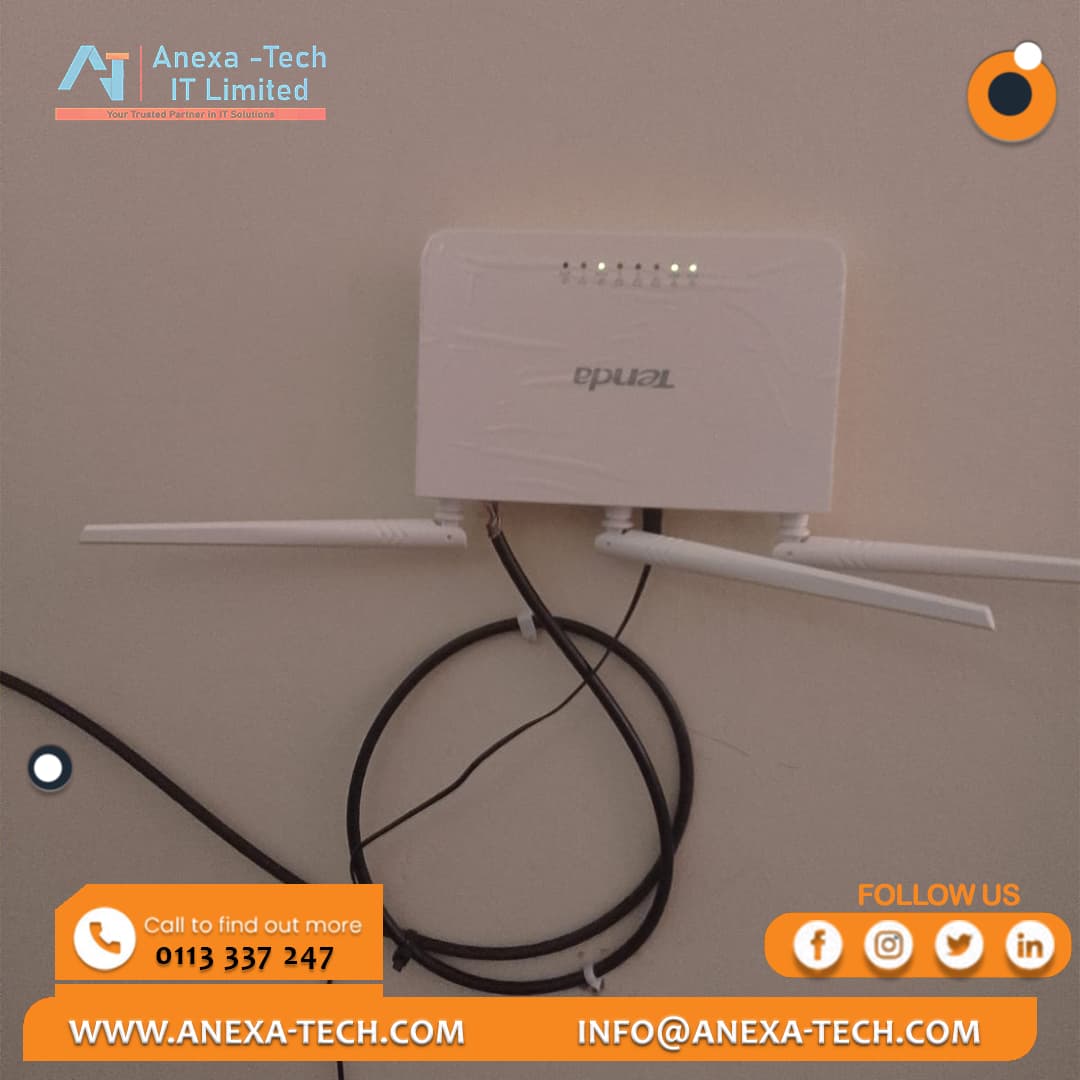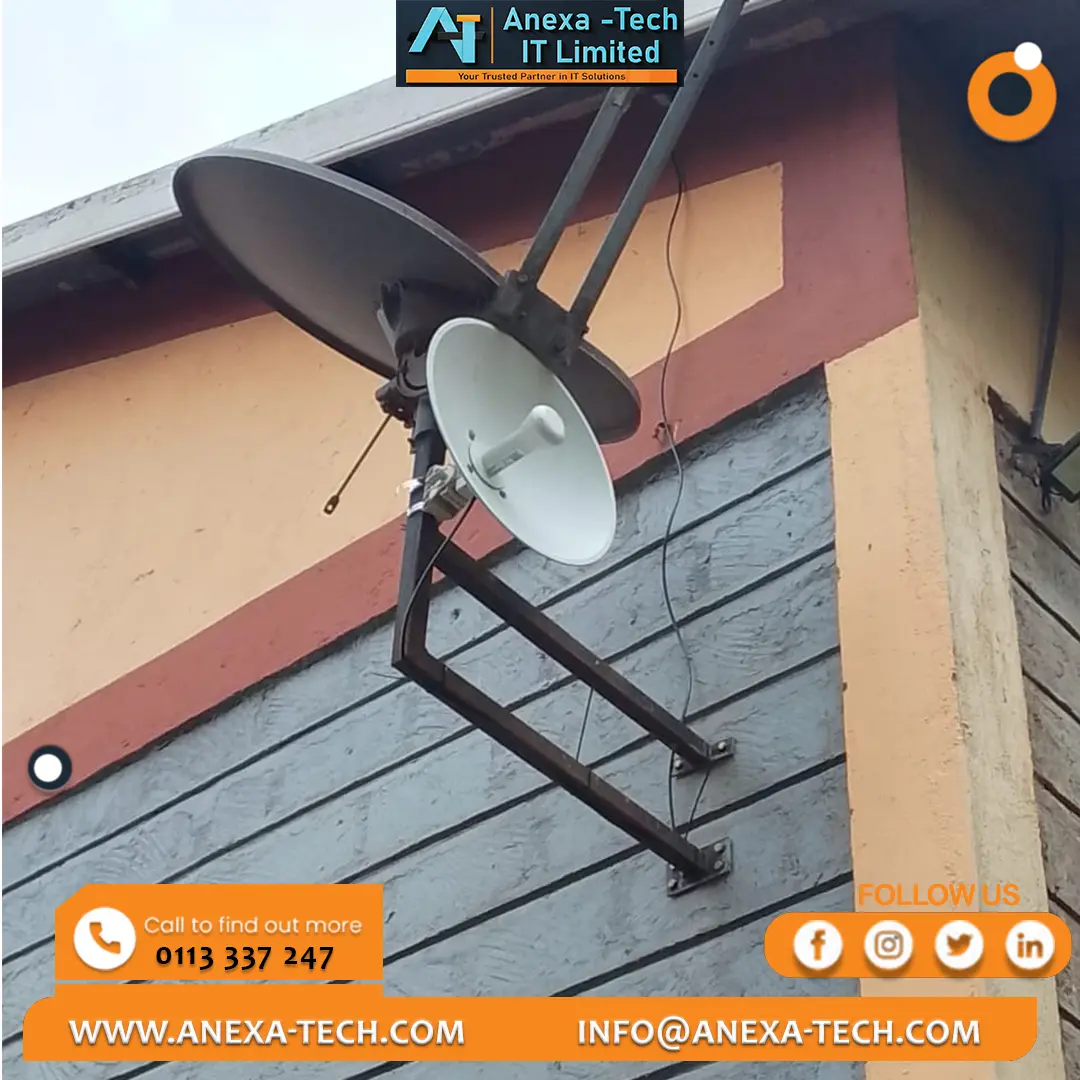Fiber vs Fixed Wireless Internet in Kenya: Which Is Best for Your Home or Business?
Over the past few years, the demand for fixed internet access in homes and businesses has risen sharply. The number of Internet Service Providers such Anexa-tech has risen to meet this demand.
These ISPs offer two options Fiber Wired Connection and Fixed Wireless Internet. If you’re unsure about the differences between the two or which is better suited for you, you’re not alone. This article will break down the key distinctions and help you make an informed decision based on your specific needs.
What is Fiber Wired Connection and Fixed Wireless Internet?
Radio Wireless Internet
Fixed Wireless Internet relies on a Radio Connection between a subscriber’s building and a network tower operated by an Internet Service Provider (ISP). A receiver dish, often a Cambium or NanoStation, is mounted on your property. This receiver communicates wirelessly with the nearest ISP tower, connecting to an Access Point (AP) that’s linked to high-speed fiber or backbone infrastructure.
These radio-based links operate in the 5GHz microwave spectrum, which is less congested and supports high bandwidth. This technology can deliver internet speeds exceeding 1Gbps.
Fiber Wired Connection
Fiber internet uses fiber optic cables to transmit information as pulses of light, delivering at the speed of light. It is deployed through electric poles or underground ducts. Once the fiber reaches your premises, it connects to a fiber router that distributes the internet via WiFi to your devices.
Fiber can deliver ultra-fast internet speeds even exceeding 10Gbps. This makes it ideal for heavy usage like video streaming, online gaming, remote work, and enterprise operations.

Factors to Consider when choosing
With the average use going for a max of 100Mbps, both wired and wireless connections are appropriate. A comparison of Speed, Reliability, Latency & Cost is necessary for clarity.
Latency
Latency is the time a signal travels from point A to point B. The higher the latency, the more buffering a user streaming video may encounter. Over long distances fiber has higher latency compared to wireless Connection. This means that wireless connections are more reliable and efficient compared to fiber.
Cost
The overall cost of laying fiber infrastructure is significantly higher per KM of coverage compared to wireless radio Connection. Wireless Radio Access Points, APs, Can comfortably cover 20KM.
Speed
Fiber optic has a higher throughput capacity of up to 10gbps while the maximum for wireless connection is 1Gbps. However, most subscribers utilize a speed of between 10Mbps-300Mbps. This speed ranges can be offered with a wireless link as perfectly as a wired link can.
Reliability
Fiber cables are deployed mostly on electricity poles and are prone to cuts and vandalism leading to service interruptions. On the other hand, wireless radios are installed on the client’s property, making them more secure.
Conclusion
Both provide reliable internet connections and are reliable. Wireless radio connections have a slight advantage over fiber connections. I would therefore recommend a radio connection due to it ease in installation and reliability. If you need a direct internet link for your business, as an ISP or for your building as a developer, reach out to us today.








Leave a Reply